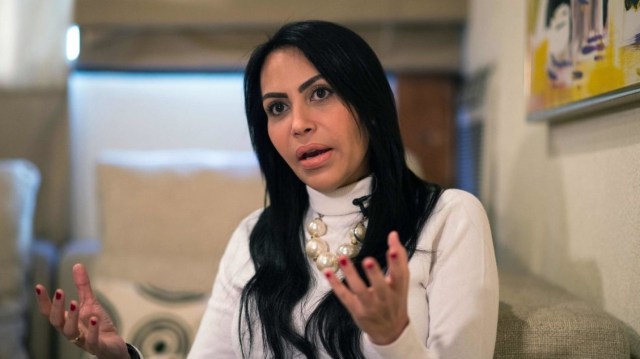
Despite some small advances and changes in legislation, both chavismo and the opposition make things more difficult for female politicians. But Venezuela could take some steps towards equality.
By Caracas Chronicles – Natalia Brandler
Jun 16, 2022
The level of women’s participation in Venezuelan politics is discouraging. Although the recent political conflict, electoral distrust, the prolonged economic, humanitarian and migration crises limit women’s participation in politics, they don’t tell the whole story on women’s exclusion from Venezuelan politics.
In reality, internal political structures and leadership roles remain dominated by men, especially within Venezuela’s most relevant political parties and institutions. Of the fifteen permanent commissions in the 2015 National Assembly – the only de jure legislature in Venezuela led by the caretaker government presided by Juan Guaidó – only two are led by women. Women are excluded from decision-making in high-profile policy areas like energy and the economy.
A pervading culture of machismo, lack of resources, exclusion from existing networks, and non-political duties contribute to women’s under-representation in political leadership positions. Excluding women hurts women, men, and Venezuelan parties themselves. Parties benefit from including women, whether through more representative electoral positions, access to new voter groups, or stronger relationships with their constituents, 83% of which don’t trust political parties, as a recent national poll found.
Having worked closely with party members across Venezuela and the region, neither all of our problems nor solutions are unique to Venezuela. Many of our neighbors experiencing similar challenges have made substantial progress in empowering women. Building on their examples, there are six actions that could significantly enhance women’s participation in Venezuelan politics.
One: 50% Parity
First, our legislature should adopt a 50% parity mechanism with vertical rank-order rules for the distribution of female and male candidates, to ensure equal representation in our legislature, and ascertain penalization for non-compliance. Past quotas mandated by the National Electoral Council (CNE) have been unsuccessful partly because they lacked an enforcement mechanism to ensure compliance.
México addressed this problem by demanding that each party submit a candidate list prior to elections, and subsequently refusing to register parties if they failed to comply with the quota. That process has worked wonders, México’s lower house today boasts full parity, women lead a quarter of México’s 32 states, and they even outnumber men in local legislatures. Chile’s new cabinet is made of 14 women and 10 men.
Two: Multipartisan Sorority
Second, Venezuelan women need to work across party lines – both inside and outside parliament – to push for norms expanding women’s representation. To implement a parity law, and better yet, to secure more meaningful leadership positions for women, women need to harness their collective power.
México’s gender quota, for example, was only adopted after female legislators across the political spectrum joined forces to develop the law. When Mexican parties sought to undercut the law’s efficacy by placing women candidates in districts where they were unlikely to be elected, as has often been the case in Venezuela, women’s coalitions sued them – and won.
Another promising example comes from Peru’s Women’s Forum, a coalition of women-led groups that successfully lobbied for a legislated quota with an enforcement mechanism. A similar group in Venezuela, working on the margins of the National Assembly, could seek to influence legislation for a national quota, as well as an effective enforcement mechanism.
We have experience on this. Tibisay Lucena summoned Evangelina Garcia Prince and myself to write the CNE parity rule in 2005, and Lucena invited more women from the opposition to support the rule five years later, which they did.
Three: Reach Out to Civil Society
Third, women in politics must do more to build alliances with civil society organizations and their male counterparts. In Venezuela, the political participation of women happens largely at a grassroots level. We must leverage these links with civil society, as well as relationships with male party leaders and peer organizations, to create broader public support around parity and the meaningful participation of women throughout the political system.
…
Read More: Caracas Chronicles – How to level the playing field for women in Venezuelan Politics
…

